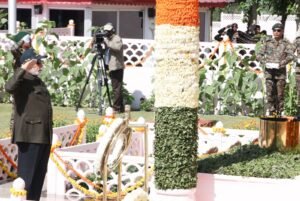Last Updated on September 18, 2020 at 7:38 pm
The opposition parties went on protests after the three farm bills were tabled in the Lok Sabha. After the two bills were passed, massive protests were witnessed all over the country by the farmers.
The farmers in both the states of Punjab and Haryana have been protesting against the government from the past few weeks and Punjab’s farmer association has already announced three days rail-roko protest from September 24 to 26 across both the states.
Different farmer organizations in the view of ongoing protest have already called for a bandh on September 25 in protest against the three farm bills. The farmers said that the bills will lead to the breaking of the minimum support price and they have to depend on the mercy of big corporate houses.
Although the center has kept a stand on its decision and has said that these bills will increase farmers’ income and make their lives easier but there are few points in the bill that have angered the farmers. The farmers fear that they will no longer get paid at Minimum Support Price (MSP) and their goods would be sold at comparatively low price. They want that profitable sales in the form of MSP should be made legal.
The farmers want a separate ordinance should be passed according to which if an agency buys the crop from the farmers below the MSP then legal action should be taken against that agency. The commission agents are also worried that they will lose their commission in grain mandis and the agents don’t want to lose their grip over farmers.
According to Punjab Agricultural University (PAU) in Ludhiana of Punjab, there are about twelve lakh farming families and about twenty-eight thousand registered commission agents in the state. A large part of the state’s economy depends upon the funds invested by the Food Corporation of India (FCI).
Now the protesters fear that the FCI will no longer be able to obtain from the state mandis and this will affect the commission agent or ‘arhatiya’ of their 2.5 percent commission. The state will also lose its 6 percent commission it used to charge on the procurement agency. Farmers firmly believe that the bills are designed only to benefit big firms at the cost of their income.
Farmers said that the bill will make a replica of old structures outside mandis that will create two market spaces with completely different sets of rules. PM Narendra Modi in his speech calls the bills as ‘raksha kawach’ (protective shield) and said that that opposition is spreading rumors about the farm bills.
According to the government, the bills will stimulate the agricultural sector through private sectors investing in agricultural infrastructure and supply chains in Indian farm produce both at national and international markets. The bills are aimed to open employment opportunities in the sector of agriculture and it will strengthen the economy.
The bills will promote barrier-free inter-state and intra-state trade outside the premises of the market controlled by the state agricultural produce marketing legislations. The center has called the bills as a progressive step in opening governed agricultural markets in the country.
While the opposing parties have supported the farmers in opposing the bills and saying that the bills will only benefit the big farmers and corporate houses. The government has said that the bills will benefit the farmers, consumers, and traders. According to Ramesh Chand, a member of NITI Aayog a large number of agricultural experts and economists were in favor of these bills in the agricultural sector.
He said that the central government has earlier asked the states to implement the model APMC act, 2002-03 but the States didn’t bother to fully adopt it that is why the center has to bring the ordinance. It will help farmers to get a better price for production. This is a very forward-looking situation and it’s a win situation for all farmers, consumers, and traders.
Harsimrat Kaur Badal the Union minister of the Food Processing industry and Member Parliament of Shiromani Akali Dal (SAD) resigned from her post. She said that her resignation is her support to the farmers who are protesting against the bills. The President Ram Nath Kovind accepted her resignation on Friday.
Narendra Singh Tomar was given the charge of the food processing industries ministry. In his speech, Narendra Singh Tomar said that the bills will not affect the Agriculture produce marketing committee acts of the state. Shiromani Akali Dal’s chief and Harsimrat Kaur Badal’s husband Sukhbir Singh Badal said that the party is with the farmers of the country and oppose the bills but the Shiromani Akali Dal will continue to be a part of the ruling National Democratic Alliace.
On September 10 The Bhartiya Kisan Union and other farmer organizations blocked the national highway to protest against the bills at Pipil in Kurukshetra district. The Haryana police then exercised lathicharge to put an end to the protest and to open the blocked national highway.



